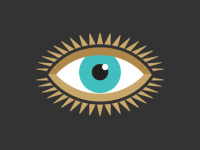A Hunger for Dystopia: Critical Thinking on the Journey to Self-Discovery
Contemporary dystopian fiction, including The Handmaid’s Tale and The Hunger Games, offers young people a mirror for their society’s fears, flaws, shortcomings, and injustices.
Your content has been saved!
Go to My Saved Content.I was in high school in the mid '90s when I first read George Orwell's dystopian novel 1984. It lifted the veil of my childhood innocence, opening my eyes to the injustices of the adult world. Once I finished the chilling, final sentence of the novel, there was no going back to my naive self.
New dystopian books are dominating the bestseller list. The Hunger Games trilogy has spent more than 260 consecutive weeks (more than five consecutive years to date) on The New York Times Best Seller list and has more than 65 million copies in print. And Publishers Weekly claims:
1984 helped me uncover dark truths about the adult world. It bred a rebellious streak in me, or so I thought. Looking back, I wasn't rebellious at all. I wasn't defying authority and upending injustices. I was just a teenager going about his school day in ripped jeans and flannel shirts. But dystopian lit made me believe that I was a rebel.
Today's stories resonate with teenagers in a similar way. On their journey to self-discovery, they're identifying with a new crop of young protagonists, often in post-apocalyptic worlds, crusading against oppression. That's because they too are beginning to question the authority of their parents, become skeptical of our political system, and challenge the traditional power structures like school and the law.
Dystopian novels belong in our classrooms because they hold a mirror up to our fears and flaws. They use amplification, irony, and paradox to reflect the shortcomings and injustices of the day.
For those of you that read 1984, Fahrenheit 451, or Brave New World in high school, here are five updates to the dystopian genre that will captivate you and your students.
The Handmaid's Tale
Margret Atwood wrote this shortly after the conservative revival of the 1980s, just as Ronald Reagan and Margaret Thatcher assumed power. The novel opens with a staged terrorist attack that wipes out the president and most of Congress, allowing religious fanatics to seize power and strip women of their freedoms. In many ways, it imagines a reversal of the rights that women fought to achieve in the 1960s and '70s. Atwood has said that the book "has become a sort of tag for those writing about shifts towards policies aimed at controlling women, and especially women's bodies and reproductive functions."
The Giver
In this coming-of-age story, Jonas is given the job of holding all of the memories of the community, good and bad. Through his training, he starts to question whether or not the numbness the leaders have chosen for the community is a good thing. Is it worth missing all of the joy to bypass the pain of life? In a 2005 speech to the University of Richmond, Lois Lowry, author of The Giver, said:
Feed
Corporate culture, technologically-controlled minds, and rampant consumerism are just a few of the targets on author M.T. Anderson's agenda. The story is about Titus, Violet, and the Feed -- an internet connection implanted in the brain. Those with feeds can access "vast digital knowledge databases, untold consumer goods, and can communicate with others quickly and silently." Yet, as Violet and Titus uncover, it's more a tool for thought control, advertisement, and manipulation rather than intellectual advancement. Anderson has said:
The Hunger Games
This series highlights the inequalities of a post-apocalyptic society, pointing out the meaninglessness of vanity and the cruelty of a severe caste system that punishes those who rebel. The voyeuristic thrill of reality television and our apathy toward war and violence are twin targets of author Suzanne Collins. She explained to Scholastic:
Divergent
Veronica Roth wrote the story that became Divergent while on winter break at Northwestern University. Roth said the inspiration came from:
Everything else includes a post-apocalyptic Chicago that divides society into personality types called factions to promote stability and balance. Yet as a beautiful female protagonist struggles to find to find her place and her true faction, she is exposed to the limitations of these social divisions, how they indoctrinate members, and how it all contributes to the manipulation of the masses.
Does this new wave of dystopian literature stack up with the classics like Brave New World, 1984, or Fahrenheit 451? I'd love to read your thoughts in the comments below.
